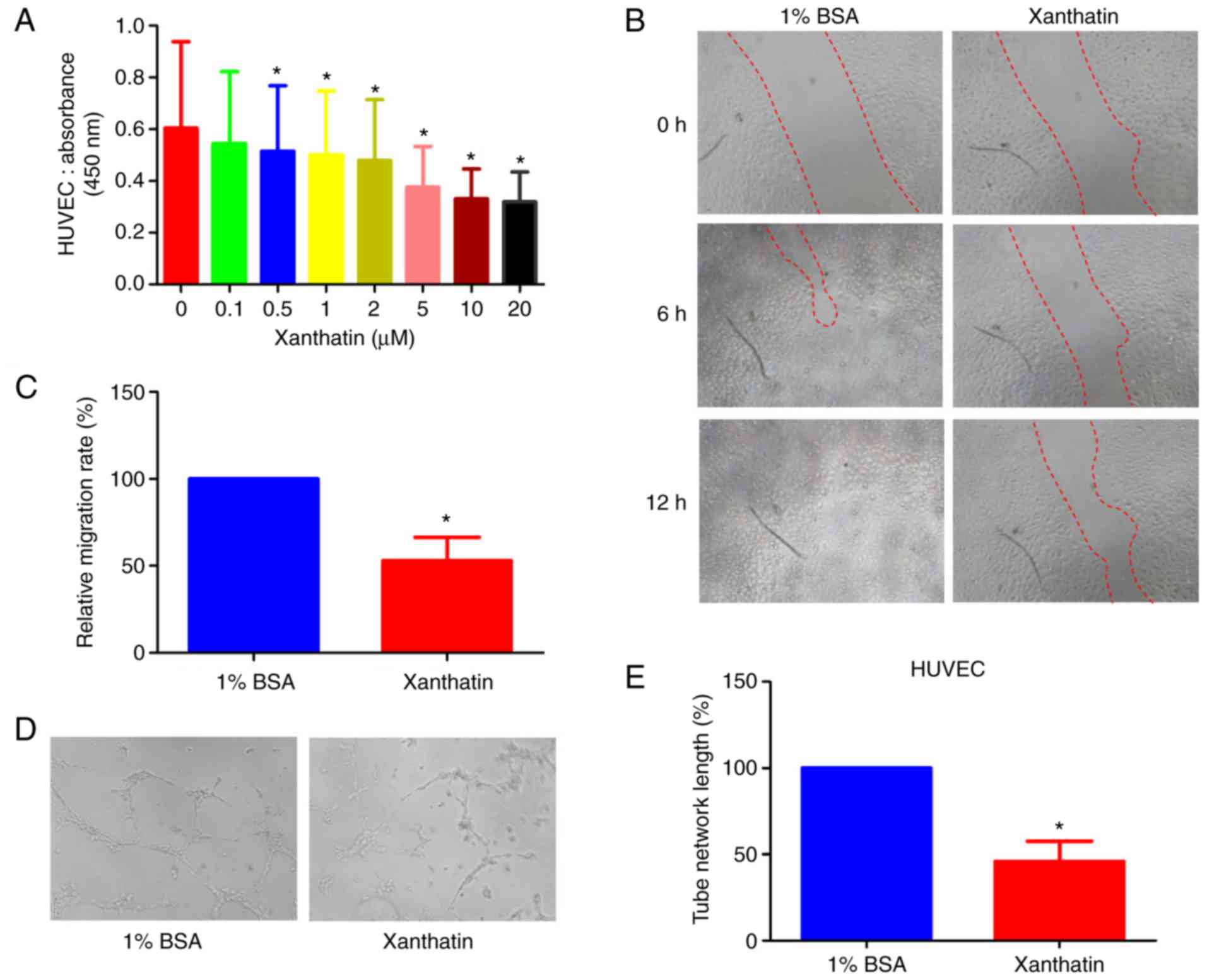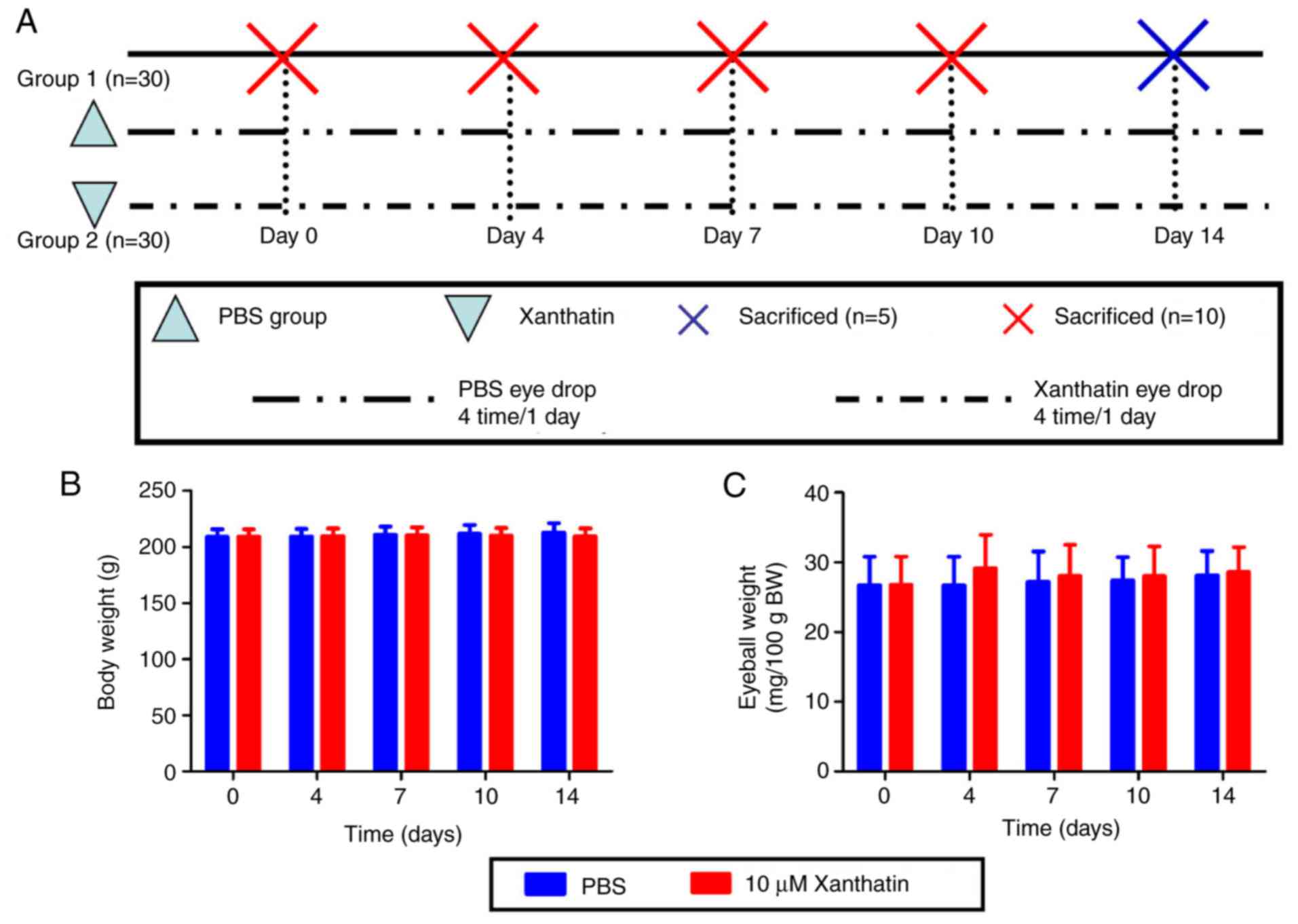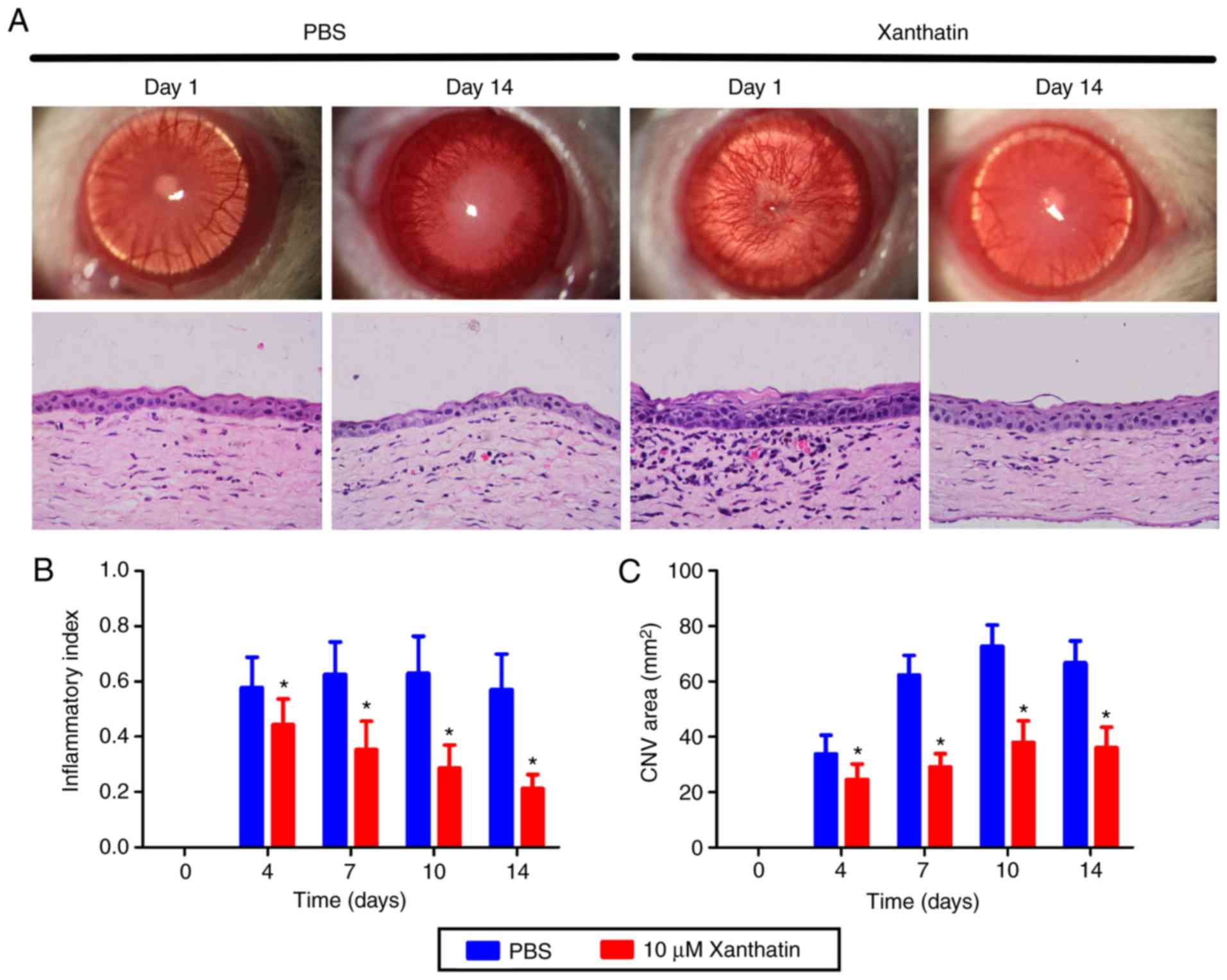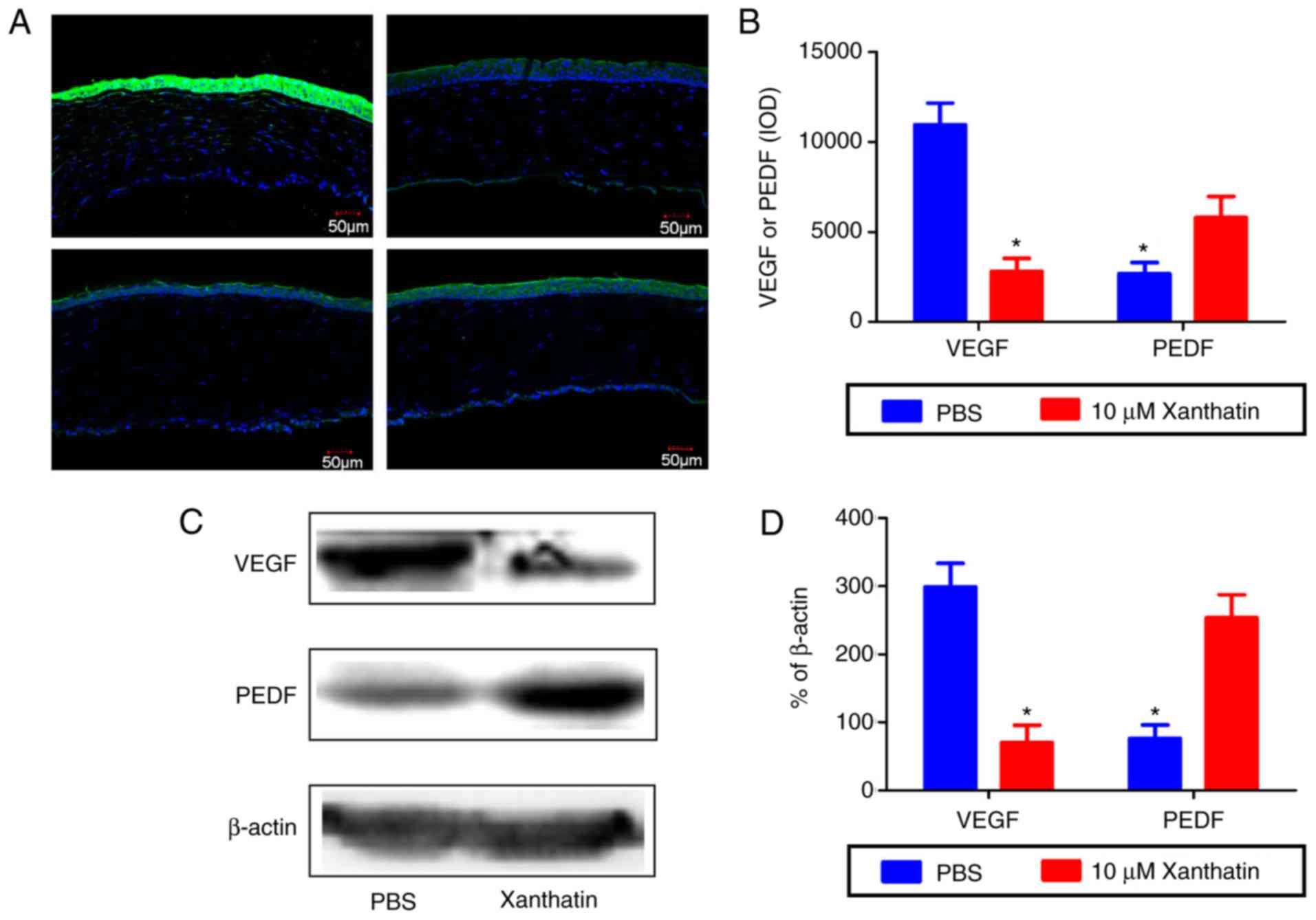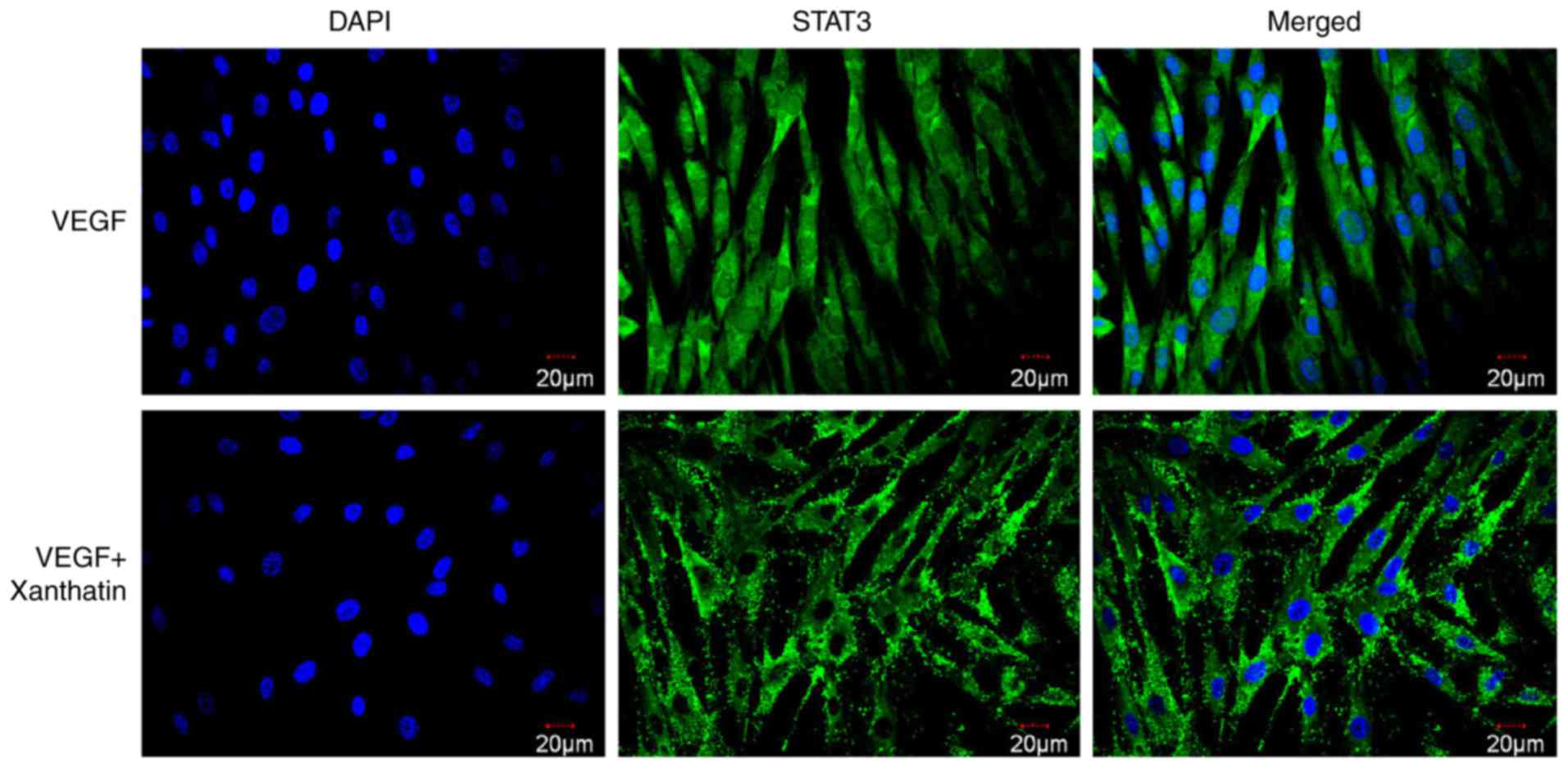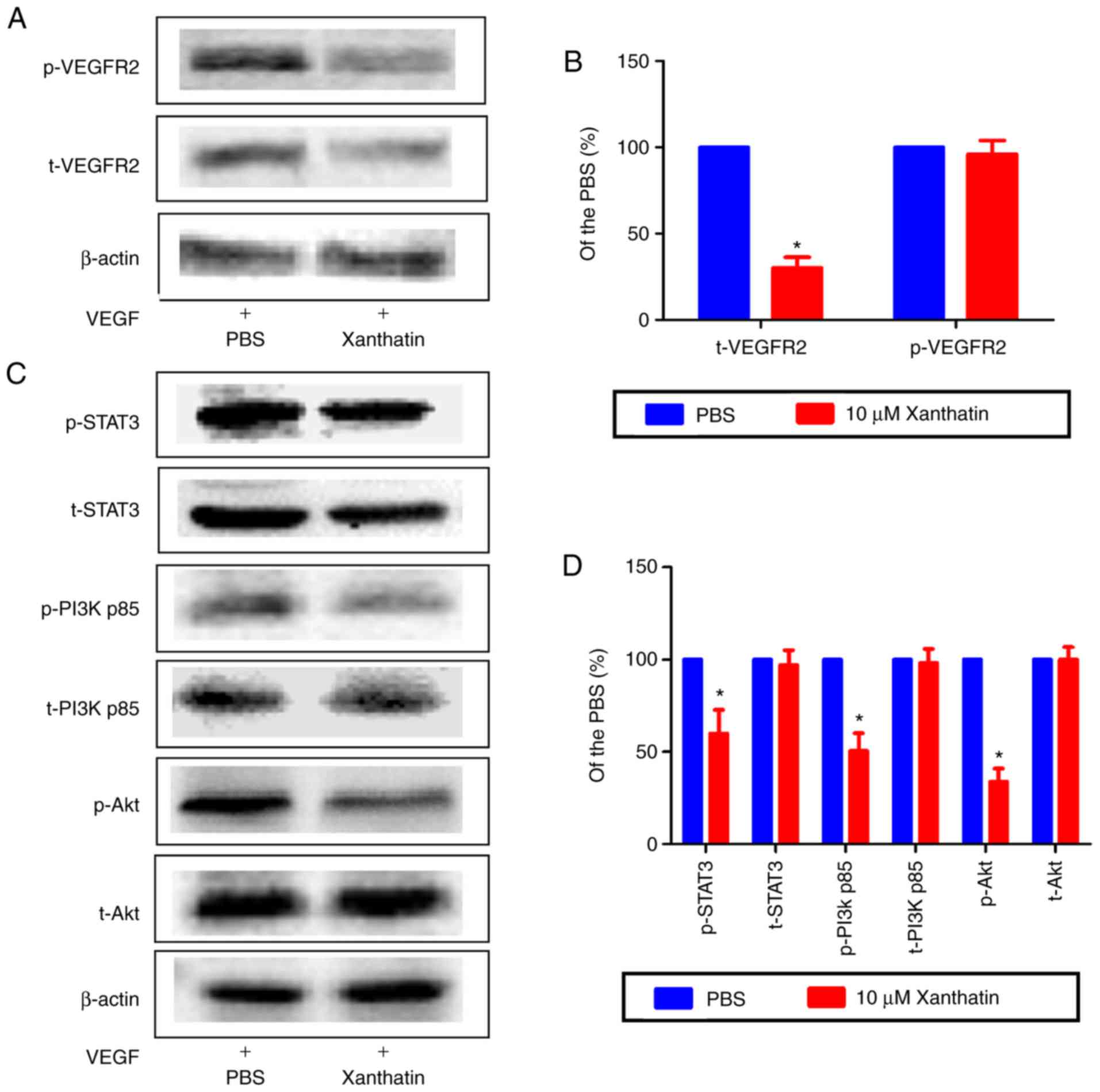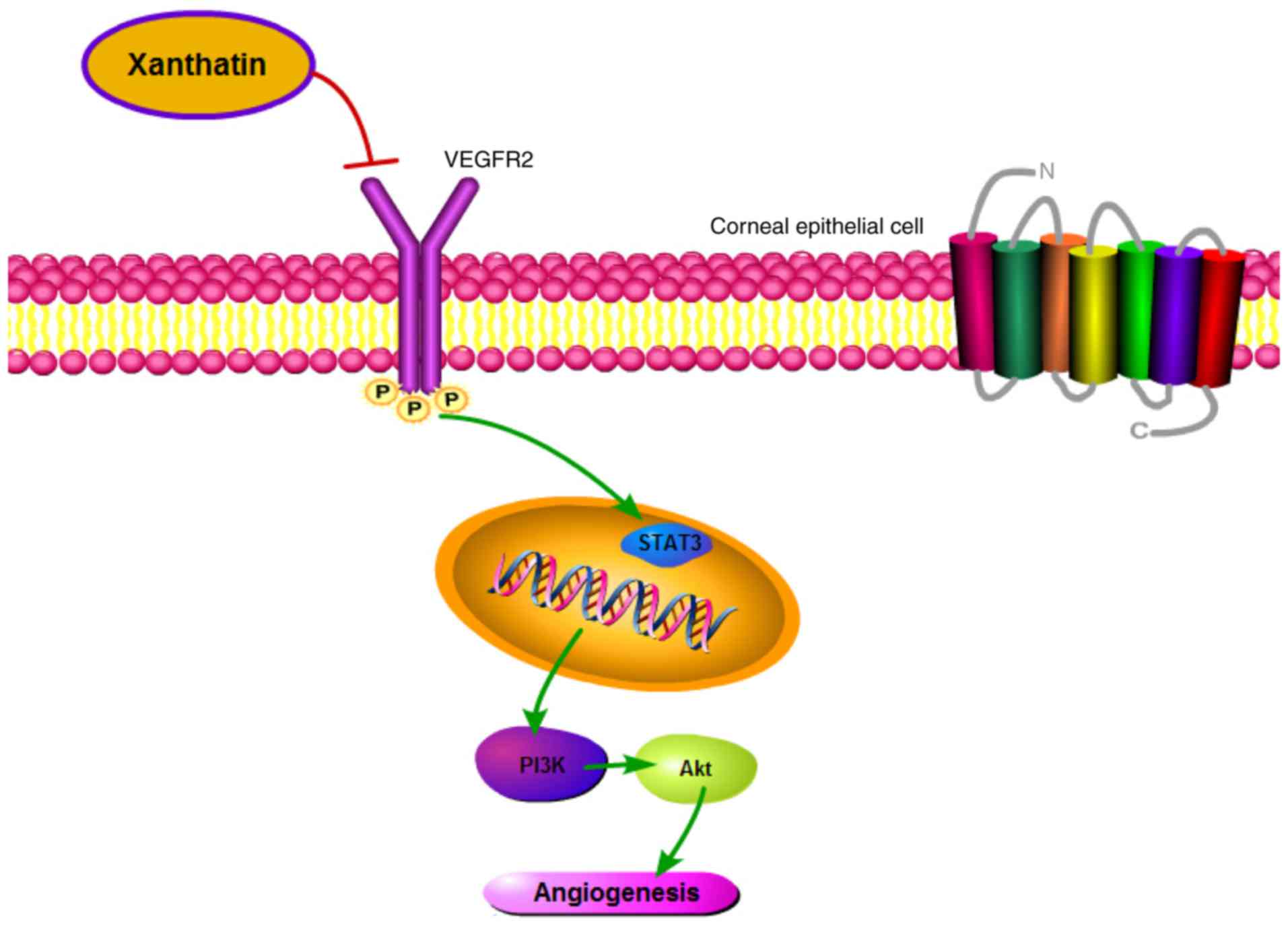|
1
|
Ellenberg D, Azar DT, Hallak JA, Tobaigy
F, Han KY, Jain S, Zhou Z and Chang JH: Novel aspects of corneal
angiogenic and lymphangiogenic privilege. Prog Retin Eye Res.
29:208–248. 2010. View Article : Google Scholar : PubMed/NCBI
|
|
2
|
West SK: Blinding trachoma: Prevention
with the safe strategy. Am J Trop Med Hyg. 69(5 Suppl): S18–S23.
2003. View Article : Google Scholar
|
|
3
|
Tutin TG, Heywood VH, Burges NA, Moore DM,
Valentine DH, Walters SM and Webb DA: Flora Europea. Volume 4.
Plantaginaceae to Compositae (and Rubiaceae). Cambridge University
Press; Cambridge: 1976
|
|
4
|
Romero M, Zanuy M, Rosell E, Cascante M,
Piulats J, Font-Bardia M, Balzarini J, De Clerq E and Pujol MD:
Optimization of xanthatin extraction from Xanthium spinosum L. and
its cytotoxic, anti-angiogenesis and antiviral properties. Eur J
Med Chem. 90:491–496. 2015. View Article : Google Scholar
|
|
5
|
Li WD, Wu Y, Zhang L, Yan LG, Yin FZ, Ruan
JS, Chen ZP, Yang GM, Yan CP, Zhao D, et al: Characterization of
xanthatin: Anticancer properties and mechanisms of inhibited murine
melanoma in vitro and in vivo. Phytomedicine. 20:865–873. 2013.
View Article : Google Scholar : PubMed/NCBI
|
|
6
|
Tao L, Sheng X, Zhang L, Li W, Wei Z, Zhu
P, Zhang F, Wang A, Woodgett JR and Lu Y: Xanthatin anti-tumor
cytotoxicity is mediated via glycogen synthase kinase-3β and
β-catenin. Biochem Pharmacol. 115:18–27. 2016. View Article : Google Scholar : PubMed/NCBI
|
|
7
|
Pinel B, Landreau A, Seraphin D, Larcher
G, Bouchara JP and Richomme P: Synthesis of reduced xanthatin
derivatives and in vitro evaluation of their antifungal activity. J
Enzyme Inhib Med Chem. 20:575–579. 2005. View Article : Google Scholar
|
|
8
|
Chandel S, Bagai U and Vashishat N:
Antiplasmodial activity of Xanthium strumarium against Plasmodium
berghei-infected BALB/c mice. Parasitol Res. 110:1179–1183. 2012.
View Article : Google Scholar
|
|
9
|
Waltenberger J, Claesson-Welsh L, Siegbahn
A, Shibuya M and Heldin CH: Different signal transduction
properties of KDR and Flt1, two receptors for vascular endothelial
growth factor. J Biol Chem. 269:26988–26995. 1994.PubMed/NCBI
|
|
10
|
Quinn TP, Peters KG, De Vries C, Ferrara N
and Williams LT: Fetal liver kinase 1 is a receptor for vascular
endothelial growth factor and is selectively expressed in vascular
endothelium. Proc Natl Acad Sci USA. 90:7533–7537. 1993. View Article : Google Scholar : PubMed/NCBI
|
|
11
|
Gille H, Kowalski J, Li B, LeCouter J,
Moffat B, Zioncheck TF, Pelletier N and Ferrara N: Analysis of
biological effects and signaling properties of Flt-1 (VEGFR-1) and
KDR (VEGFR-2). A reassessment using novel receptor-specific
vascular endothelial growth factor mutants. J Biol Chem.
276:3222–3230. 2001. View Article : Google Scholar
|
|
12
|
Bernatchez PN, Soker S and Sirois MG:
Vascular endothelial growth factor effect on endothelial cell
proliferation, migration, and platelet-activating factor synthesis
is Flk-1-dependent. J Biol Chem. 274:31047–31054. 1999. View Article : Google Scholar : PubMed/NCBI
|
|
13
|
Yu Y, Yu J, Pei CG, Li YY, Tu P, Gao GP
and Shao Y: Xanthatin, a novel potent inhibitor of VEGFR2
signaling, inhibits angiogenesis and tumor growth in breast cancer
cells. Int J Clin Exp Pathol. 8:10355–10364. 2015.PubMed/NCBI
|
|
14
|
D'Amato RJ, Loughnan M, Flynn E and
Folkman J: Thalidomide is an inhibitor of angiogenesis. Proc Natl
Acad Sci USA. 91:4082–4085. 1994. View Article : Google Scholar : PubMed/NCBI
|
|
15
|
Chang JH, Garg NK, Lunde E, Han KY, Jain S
and Azar DT: Corneal neovascularization: An anti-VEGF therapy
review. Surv Ophthalmol. 57:415–429. 2012. View Article : Google Scholar : PubMed/NCBI
|
|
16
|
Eliason JA: Leukocytes and experimental
corneal vascularization. Invest Ophthalmol Vis Sci. 17:1087–1095.
1978.PubMed/NCBI
|
|
17
|
Qazi Y, Wong G, Monson B, Stringham J and
Ambati BK: Corneal transparency: Genesis, maintenance and
dysfunction. Brain Res Bull. 81:198–210. 2010. View Article : Google Scholar
|
|
18
|
Coster DJ and Williams KA: The impact of
corneal allograft rejection on the long-term outcome of corneal
transplantation. Am J Ophthalmol. 140:1112–1122. 2005. View Article : Google Scholar : PubMed/NCBI
|
|
19
|
Nibret E, Youns M, Krauth-Siegel RL and
Wink M: Biological activities of xanthatin from xanthium strumarium
leaves. Phytother Res. 25:1883–1890. 2011. View Article : Google Scholar : PubMed/NCBI
|
|
20
|
Wang L, Wang J, Li F, Liu X, Chen B, Tang
YX and Wang MK: Cytotoxic sesquiterpene lactones from aerial parts
of xanthium sibiricum. Planta Med. 79:661–665. 2013. View Article : Google Scholar : PubMed/NCBI
|
|
21
|
Matsui T, Nishino Y, Maeda S and Yamagishi
S: PEDF-derived peptide inhibits corneal angiogenesis by
suppressing VEGF expression. Microvasc Rec. 84:105–108. 2012.
View Article : Google Scholar
|
|
22
|
Roussakis C, Chinou I, Vayas C, Harvala C
and Verbist JF: Cytotoxic activity of xanthatin and the crude
extracts of xanthium strumarium. Planta Med. 60:473–474. 1994.
View Article : Google Scholar : PubMed/NCBI
|
|
23
|
Ohno-Matsui K, Morita I, Tombran-Tink J,
Mrazek D, Onodera M, Uetama T, Hayano M, Murota SI and Mochizuki M:
Novel mechanism for age-related macular degeneration: An
equilibrium shift between the angiogenesis factors VEGF and PEDF. J
Cell Physiol. 189:323–333. 2001. View Article : Google Scholar : PubMed/NCBI
|
|
24
|
Ferrara N: Vascular endothelial growth
factor: Basic science and clinical progress. Endocr Rev.
25:581–611. 2004. View Article : Google Scholar : PubMed/NCBI
|
|
25
|
Chen WL, Chen YM, Chu HS, Lin CT, Chow LP,
Chen CT and Hu FR: Mechanisms controlling the effects of
bevacizumab (avastin) on the inhibition of early but not late
formed corneal neovascularization. PLoS One. 9:e942052014.
View Article : Google Scholar : PubMed/NCBI
|
|
26
|
Kortylewski M and Yu H: Role of Stat3 in
suppressing anti-tumor immunity. Curr Opin Immunol. 20:228–233.
2008. View Article : Google Scholar : PubMed/NCBI
|
|
27
|
Vesely DL: Cardiac hormones for the
treatment of cancer. Endocr Relat Cancer. 20:R113–R125. 2013.
View Article : Google Scholar : PubMed/NCBI
|
|
28
|
Vesely DL: Family of peptides synthesized
in the human body have anticancer effects. Anticancer Res.
34:1459–1466. 2014.PubMed/NCBI
|
|
29
|
Arulanandam R, Batenchuk C, Angarita FA,
Ottolino-Perry K, Cousineau S, Mottashed A, Burgess E, Falls TJ, De
Silva N, Tsang J, et al: VEGF-mediated induction of RD1-BF1/Blimp1
expression sensitizes tumor vasculature to oncolytic virus
infection. Cancer Cell. 28:210–224. 2015. View Article : Google Scholar : PubMed/NCBI
|
|
30
|
Yang Z, Wang H, Jiang Y and Hartnett ME:
VEGFA activates erythropoietin receptor and enhances
VEGFR2-mediated pathological angiogenesis. Am J Pathol.
184:1230–1239. 2014. View Article : Google Scholar : PubMed/NCBI
|
|
31
|
Kamran MZ and Gude RP: Pentoxifylline
inhibits melanoma tumor growth and angiogenesis by targeting STAT3
signaling pathway. Biomed Pharmacother. 67:399–405. 2013.
View Article : Google Scholar : PubMed/NCBI
|
|
32
|
Marone R, Cmiljanovic V, Giese B and
Wymann MP: Targeting phosphoinositide 3-kinase: Moving towards
therapy. Biochim Biophys Acta. 1784:159–185. 2008. View Article : Google Scholar
|
|
33
|
Cai J, Ahmad S, Jiang WG, Huang J, Kontos
CD, Boulton M and Ahmed A: Activation of vascular endothelial
growth factor receptor-1 sustains angiogenesis and Bcl-2 expression
via the phosphatidylinositol 3-kinase pathway in endothelial cells.
Diabetes. 52:2959–2968. 2003. View Article : Google Scholar : PubMed/NCBI
|
|
34
|
Alvarez Y, Astudillo O, Jensen L, Reynolds
AL, Waghorne N, Brazil DP, Cao Y, O'Connor JJ and Kennedy BN:
Selective inhibition of retinal angiogenesis by targeting PI3
kinase. PLoS One. 4:e78672009. View Article : Google Scholar : PubMed/NCBI
|
|
35
|
Ji Y, Chen S, Li K, Li L, Xu C and Xiang
B: Signaling pathways in the development of infantile hemangioma. J
Hematol Oncol. 7:132014. View Article : Google Scholar : PubMed/NCBI
|
|
36
|
Posadas EM, Limvorasak S, Sharma S and
Figlin RA: Targeting angiogenesis in renal cell carcinoma. Expert
Opin Pharmacother. 14:2221–2236. 2013. View Article : Google Scholar : PubMed/NCBI
|
|
37
|
Zhu YJ, Zheng B, Wang HY and Chen L: New
knowledge of the mechanisms of sorafenib resistance in liver
cancer. Acta Pharmacol Sin. 38:614–622. 2017. View Article : Google Scholar : PubMed/NCBI
|















